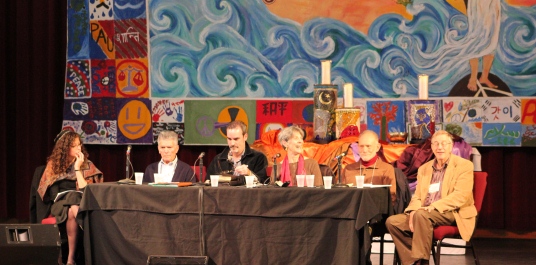
By Bart Gingerich
At the recent Lake Junaluska Peace Conference sponsored by the United Methodist General Board of Church and Society, spokespeople from various faiths offered an inter-religious perspective on peacemaking. Drawn primarily from the Asheville, NC area, the participants were united not by faith but rather by political commitments to liberalism and pacifism. “Without dialogue and peace between the world religions, there can be no peace,” claimed the master of ceremonies.
The annual event was held October 8-11 at Lake Junaluska Conference Center near Asheville, NC, which is owned by the United Methodist Church’s Southeast Jurisdiction.
Representing the Jewish tradition was Batsheva Meiri, a female rabbi. “Our core narrative as Jewish people…is the Exodus,” she stated, “We are told, ‘Be kind to the stranger, because you know the heart of the stranger.’” Meiri surmised, “When people perpetuate violence on another person, it’s because they don’t know the heart of that other person.”
Eastern Mennonite University professor Carl Stauffer decided to share insights from progressive Christian theologian Walter Wink. Stauffer called upon the audience to “enter the fray of the rigorous mental debate of politics.” He turned to the Sermon on the Mount. “Is this a position of meekness to allow ourselves to be beat up? I don’t think that’s what’s going on here,” Stauffer admitted, “That wouldn’t have brought him to the cross.” He showed that turning the other cheek meant offering an awkward stance to receive a “dehumanizing” backhand from powerful masters, among other examples. Stauffer believed that Jesus taught that “when you go back to these structures of oppression, He was telling them to protest…upsetting the social order.” What the Sermon on the Mount was really providing was “a form of prophetic engagement.”
UC Berkeley professor emeritus Michael Nagler proposed a Hindu perspective on pacifism. He traced the beginning of nonviolence to the Vedic tradition, especially the concept of ahinsa (that power that has been released when all the desire to harm is gone), which Gandhi described as “the law of the human.” Later he touted vegetarianism, since, “We want to live in a world without any predation at all. As humans, we can do that.”
Read more here.
No comments yet



